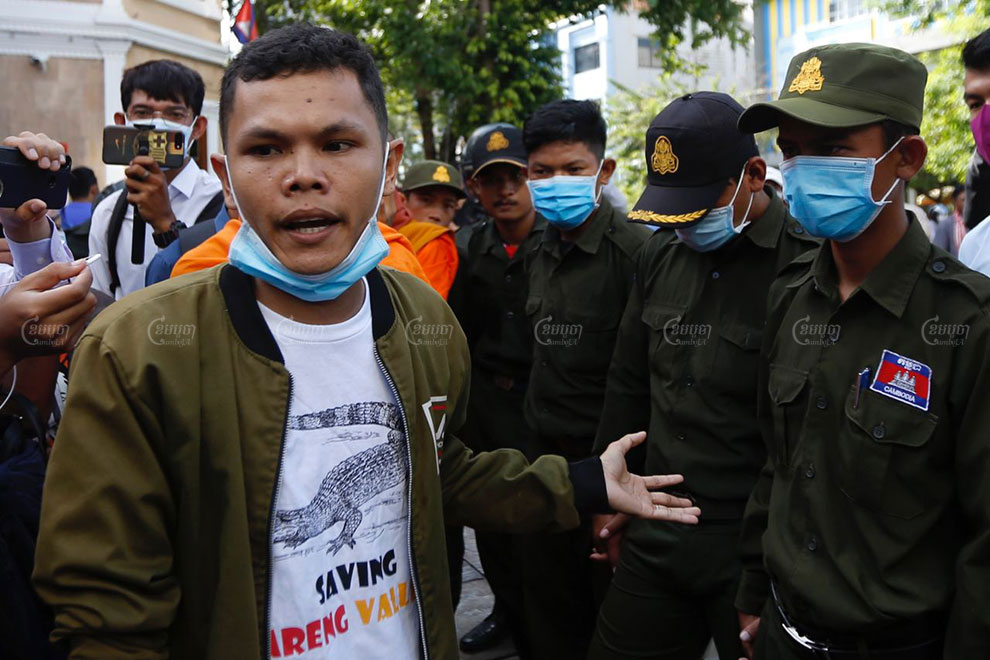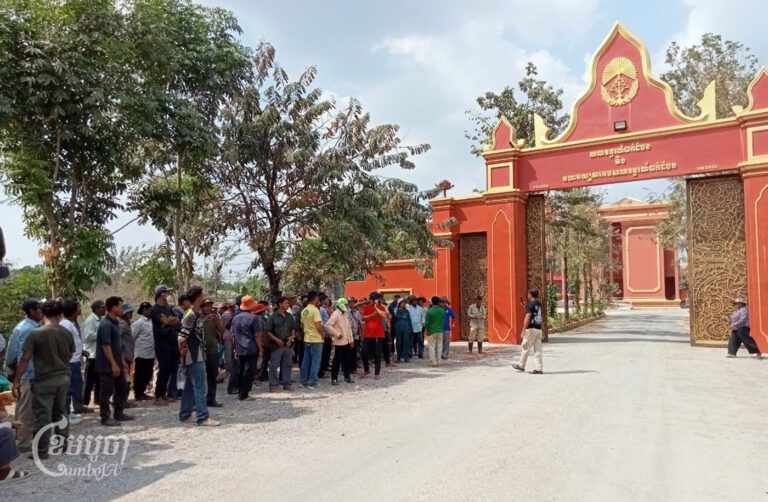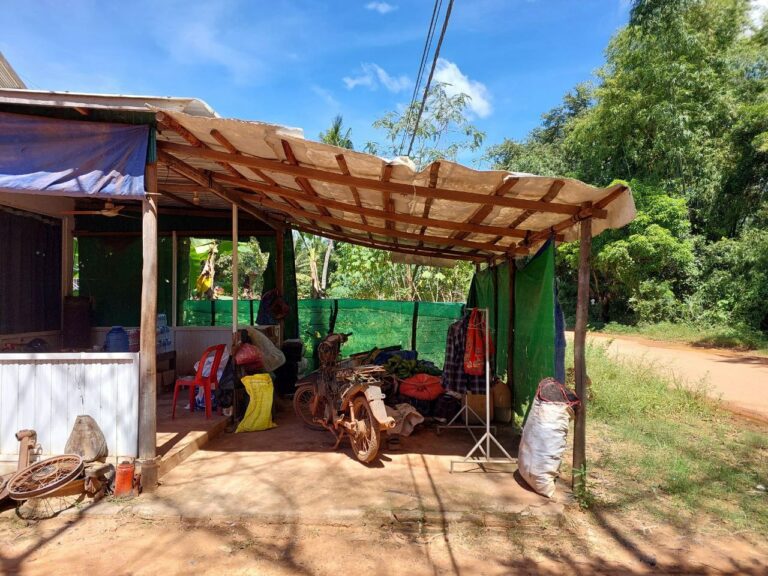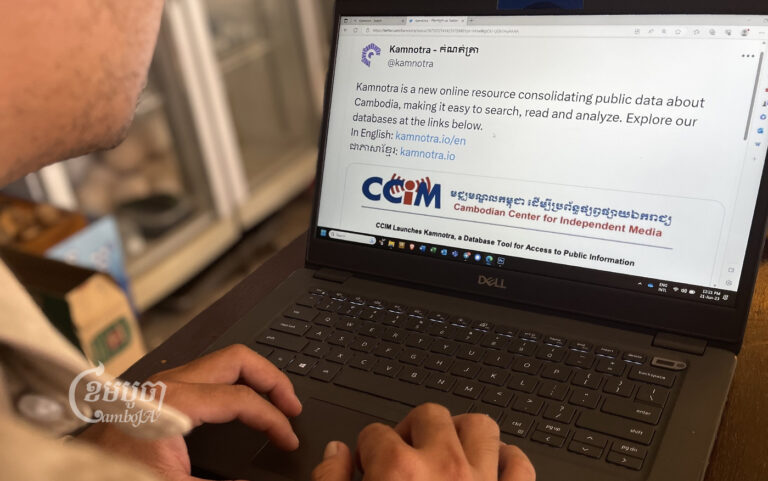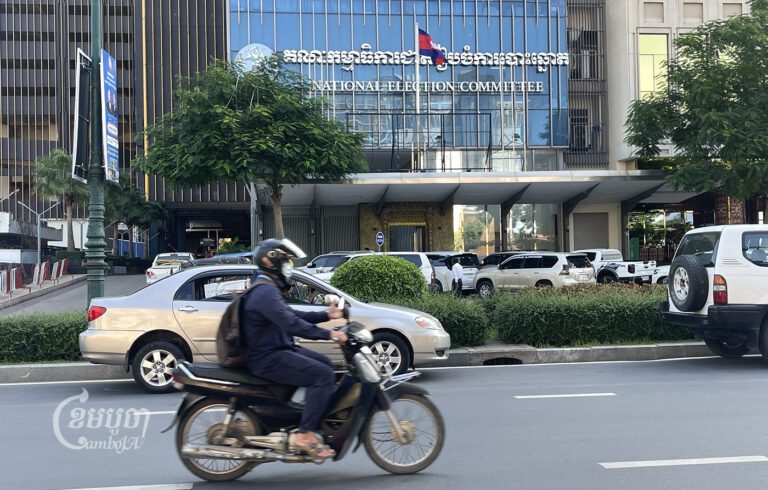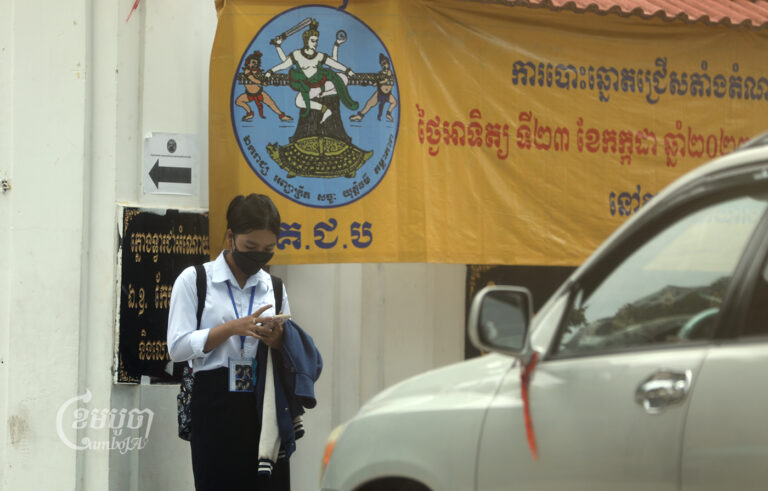Three environmental activists from the NGO Mother Nature were detained for questioning on September 3 over posts they made on social media saying they planned to march to the prime minister’s house to raise awareness on environmental issues caused by the filling in of Boeng Tamok lake.
The detentions come after two of the activists made a post on Mother Nature’s Facebook page on September 2 saying they would march to Hun Sen’s house to meet with the prime minister.
“Ms. Long Kunthea will walk from Wat Phnom on Thursday September 3 at 11am to Samdech Hun Sen’s house near the independence monument dressed in white clothes in order to request to meet Samdech in person to show concern around the filling in of Tamok lake, including flooding in Phnom Penh during rainy season, the environmental impact, the loss of bird habitat, and the biodiversity of the lake,” the post reads.
Long Kunthea and Phuon Keoreaksmey are being questioned at the Chbar Ampov district governor’s office for having written the post, while Thon Ratha is being questioned at Pur Senchey district governor’s office for sharing the post and operating a studio in his home without permission, police said.
Phnom Penh Municipal Police spokesman San Sokseiha said September 3 that the municipal information department officials and Pur Senchey district authorities were investigating Ratha for operating a media studio without permission.
“When we came to check [Ratha’s house] we actually found a studio and some materials such as computers and tripods which are meant to be used in a studio,” Sokseiha said, adding that Ratha was still being questioned at the district office as of 5pm.
He said Ratha was also being asked to explain why he had shared the post on his Facebook page.
“They have just called him in to verify what purpose he had in posting such information,” he said.
“It is just questioning, he hasn’t been accused yet,” Sokseiha said.
Pur Senchey District Governor Hem Darith, and Chbar Ampov District Governor Cheng Monira could not be reached for comment.
A notice signed by the district governor, information department officials and a court prosecutor was circulated on social media after the detentions, saying Ratha’s house located in Pur Senchey district’s Choam Chao I commune would be temporarily closed.
“We have decided to close the house due to its involvement in broadcasting information without permission,” it says.
Ratha’s wife, Pat Reaksmey, 29, called on district authorities and police to release her husband, as he had done nothing to harm anyone.
“It is an injustice to arrest him because he has made no mistake, and what he is doing is to save the environment,” she said.
Am Sam Ath, deputy director at rights group Licadho said that fundamental freedoms of expression and assembly are still being restricted, with authorities specifically targeting voices that are critical of the government.
“Arresting them is a violation of their fundamental freedoms,” he said.
He added that in a democratic society, submitting petitions and making requests are part of the right of citizens to call on authorities to address challenging issues.
“If we do not allow them to exercise their rights through democratic means, then how can they utilize their rights at all?” he asked.
He appealed to the authorities to consider citizens’ fundamental freedoms and alleged offenses to avoid drawing more criticism to the state of human rights in Cambodia.
Chak Sopheap, executive director of the Cambodian Center for Human Rights called the arrests “extremely alarming” and said they are only the latest in the ongoing harassment of Mother Nature activists.
“These further arrests unfortunately seem to show a systemic attempt at silencing and hindering the activists’ peaceful and legitimate activities in defense of the environment,” she said in an email.
“This ongoing harassment of civil society and environmental groups is not in line with the RGC’s human rights obligations,” Sopheap continued. “Environmental protection is integral to the enjoyment of many human rights and is vital for Cambodia’s future, as is the free exercise of fundamental freedoms.”


